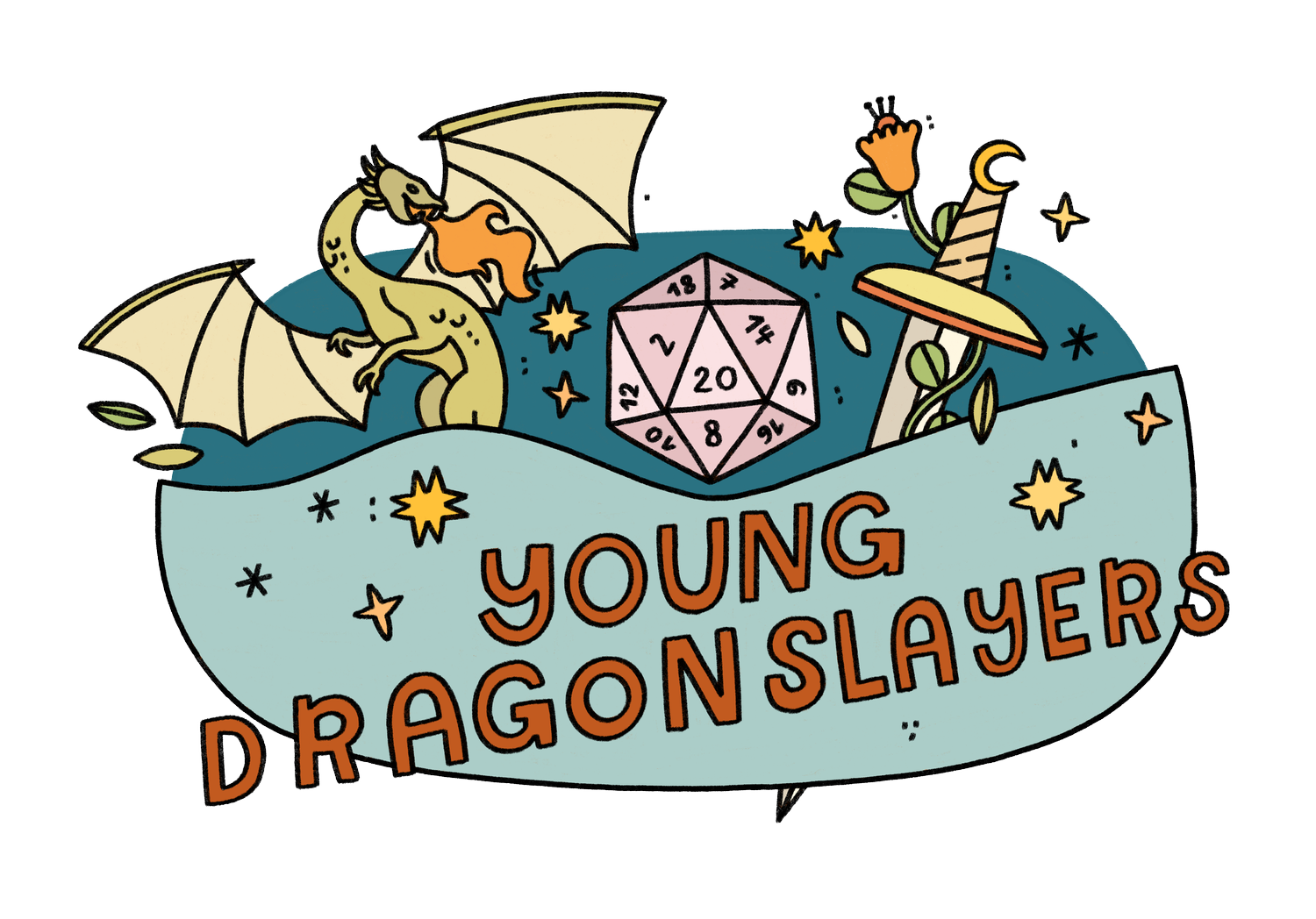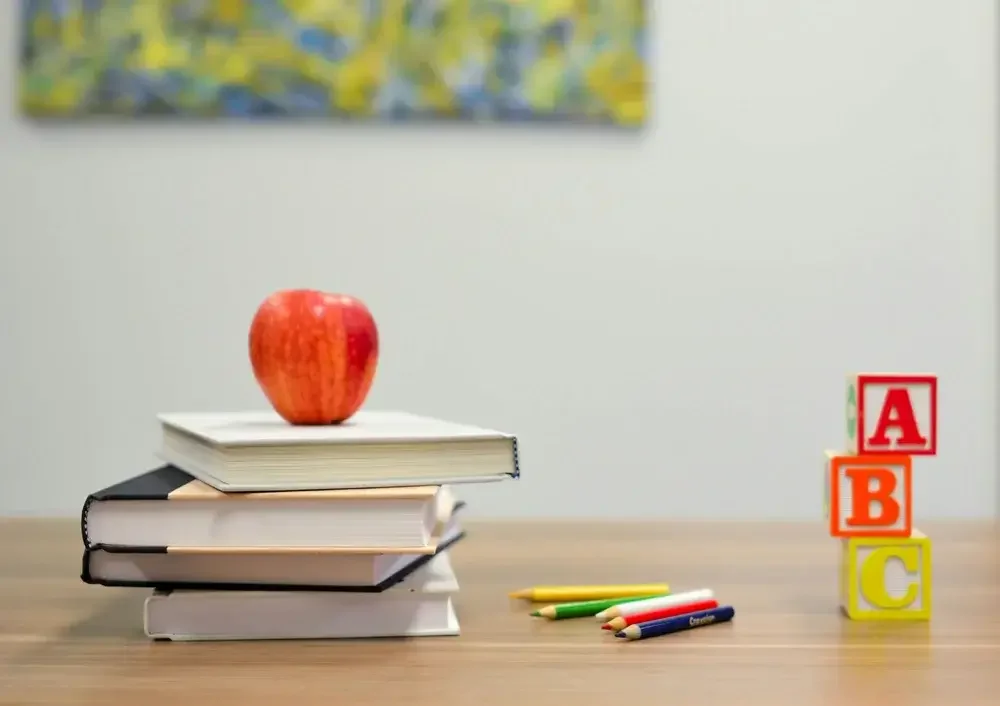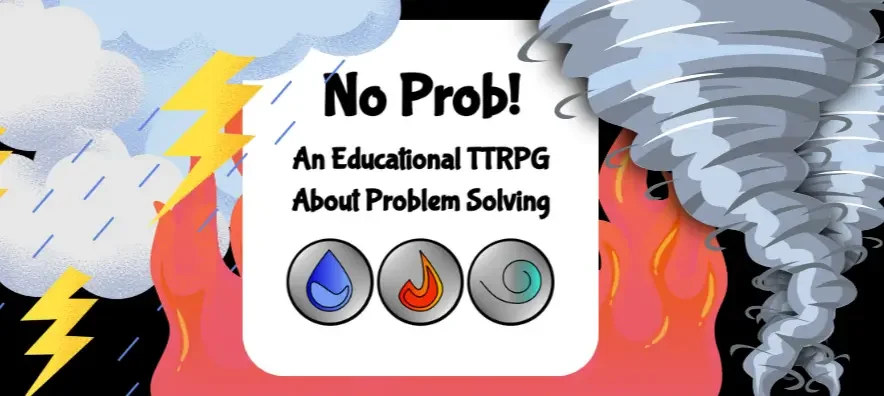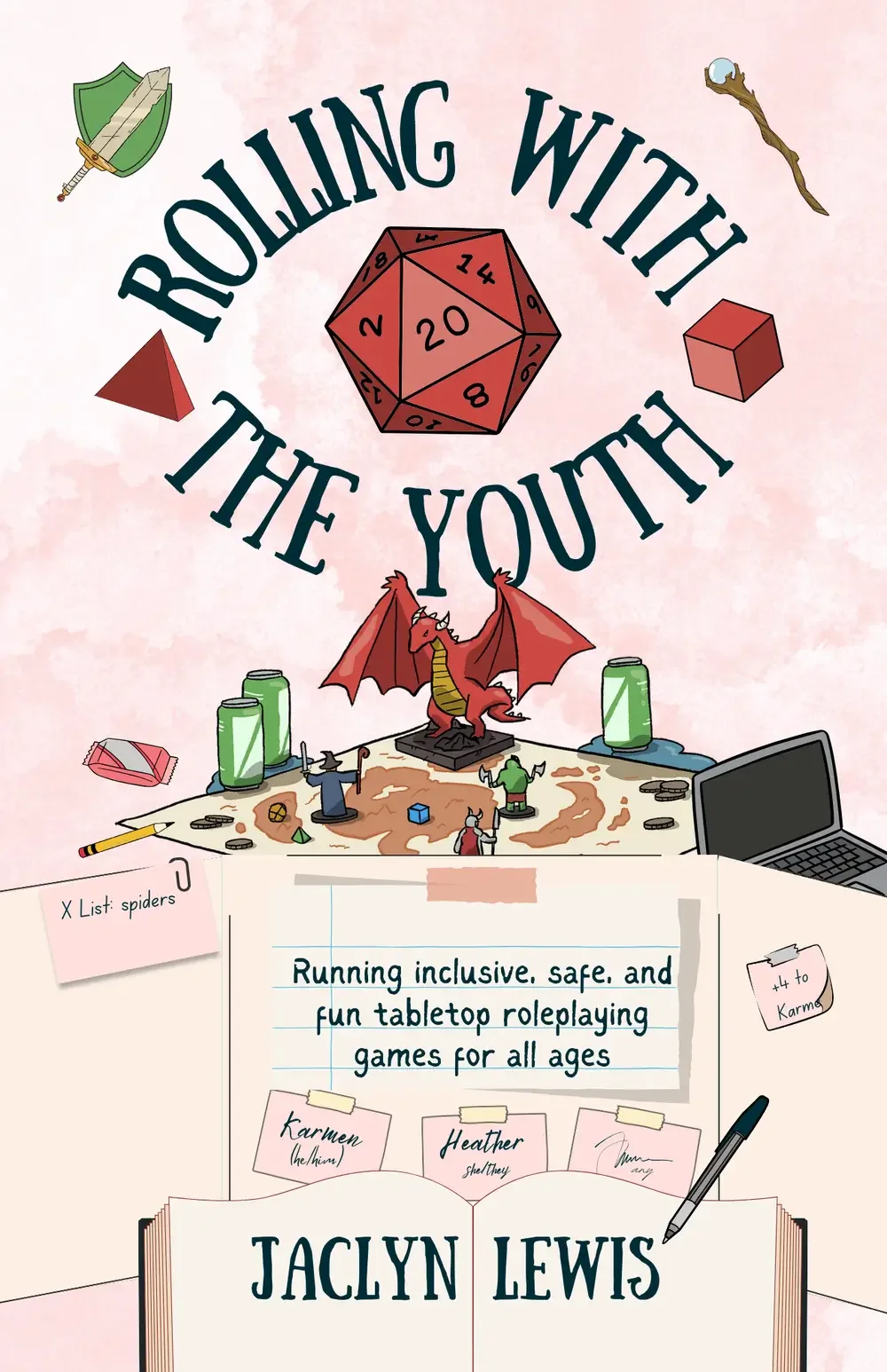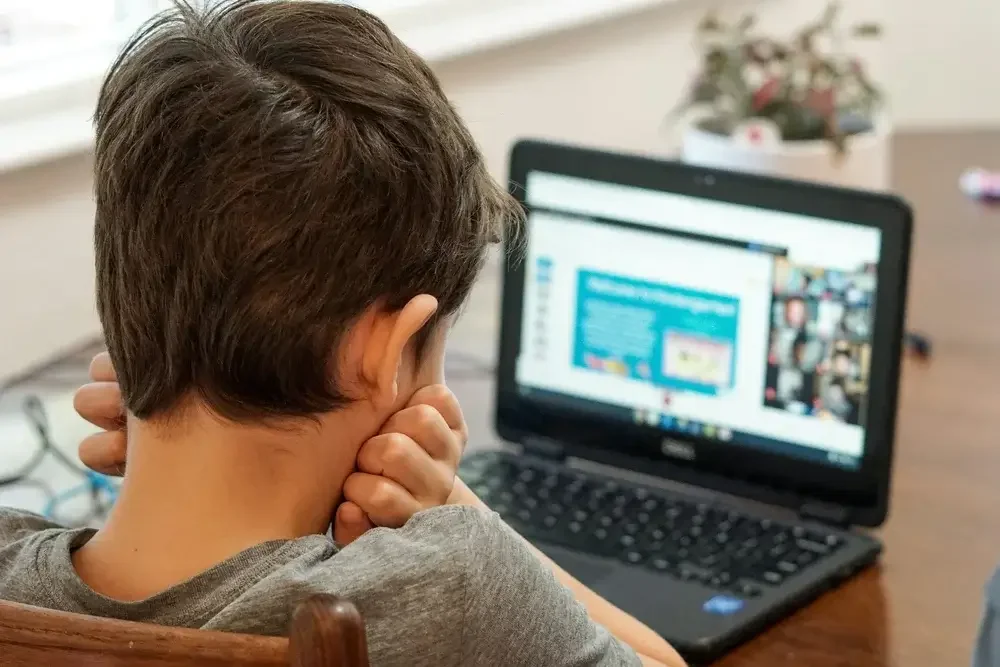DND School Clubs: An Educator’s Guide
More and more, young people are drawn towards the game of Dungeons & Dragons, and they’re desperate for a place to play. Some find friends or library groups to play, but many wish for an after school D&D club where they can play with their friends and be guided by a trusted teacher. I know, I’ve met them! I run games of D&D for after school clubs online, at libraries, and in community centers. Though getting things started is intimidating, I’ve seen just how beneficial these kinds of groups can be, and I’m here to help share DND educator resources, tips, and tricks to help teachers, youth workers, and other educators get a D&D school club off the ground – even if you’ve never rolled a die in your life!
What Are DND After School Programs?
D&D after school programs are clubs or groups where students gather to play games of D&D, and, sometimes, games like it, collectively called tabletop roleplaying games. In these games, players take on the role of characters going on adventures; they could be unicorns saving a magic kingdom, space cadets exploring the unknown, or, as is the case with many D&D games, fantasy heroes casting spells and swinging swords to defeat monsters and save the day. The way the story goes is determined by the rules of the game and the roll of the dice. The rules referee is called the Dungeon Master (or Game Master). They’re the ones coming up with the fictional world where adventures take place, the challenges the characters encounter, and the additional characters they meet along the way.
I really love what Chris Pine, star of the Dungeons & Dragons movie, had to say about the role of D&D in schools. He had never played himself, but his nephew took on the role of Dungeon Master for his family. “What I saw, especially for a family of actors, is how immediately accessible it is. It doesn't matter if you know the Sending Stones or the mimics or whatever, the world of Dungeons & Dragons and roleplaying is acting. It's improv. It's, ‘Here's what's happening. This is what you have. This is your obstacle. Now go.’” said Pine. “My father's 82, my mom's 76. I had no knowledge about it; my sister has no knowledge about it. Within 15 minutes, we were having the time of our lives and we didn't have to know anything. So for me, this idea that it's like ‘geeky’ or ‘nerdy’ or whatever, the gospel of Dungeons & Dragons that I think is so important to know, why I think it should be played in schools, is that it immediately teaches cooperation. It exercises the imagination. It's joyous, it's improvisational. And within a matter of minutes, everybody's on the same page. You're not arguing about whether or not you're cool or not. You're arguing about whether or not you should have gone over the boulder to kill the dragon. I think it's about the coolest thing I've encountered in a long time.”
Can DND Teach SEL Skills In Schools?
Chris Pine went straight to the point. Just by playing the game, students are building social emotional learning skills like communication, teamwork, negotiation, conflict resolution, emotional intelligence, planning, and problem-solving. And, unlike mandatory class exercises, they’re motivated to do so. Tons of students have heard about D&D and already want to play. Plus, like he said, there’s inherent motivation within the game world itself. There’s a dragon, there’s a boulder, and you all have to work together to figure out what to do next. I’ve seen kids start out running around trying to kill everything only to realize that they can get a lot more done by working with their friends (and it’s more rewarding to take down the big evil wizard than a random innocent shopkeeper). I’ve seen kids who have the rulebook memorized and insist on things going the right way learn to be flexible and make allowances for the “Rule of Cool” and everyone to have a turn playing their own way. I’ve seen neurodivergent kids learn to communicate their needs, work with others, and be proud of who they are and what they love. And, for games that go long enough, I’ve seen players become close friends who support and encourage one another. To misquote a famous book about a boy wizard, “Because there are some things you can’t go through in life and become friends, and fighting a dragon together is one of them.”
What Are The Educational Benefits of DND?
There’s even more than SEL skills that students can learn from D&D. Firstly, the game requires quite a bit of math. Just to make a character sheet, players need to be adding, subtracting, and dividing, not to mention the on-the-fly calculations as you play. How far a fall is this cliff? How much damage does this sword do? How long can you walk without needing to stop for rest? I’ve seen hardcore players go all in on learning statistical probability, making complex spreadsheets, or doing their own calculations, just to make sure to maximize their characters’ power. And, by being a collaborative storytelling game, it teaches both storytelling and writing skills. Players fill in elements of their characters’ backstory, personality, and motivation on their character sheet and decide what their characters would do to make an interesting story. I’ve seen many of them write speeches for their characters ahead of time, make pages-long backstories on Google Docs, or even keep an in-character journal! But this is just the tip of the iceberg. Because of the nature of tabletop games, you can use them to tell basically any story you want, introducing any kind of challenges along the way. This means there are tons of different subjects that can be taught using tabletop games, from sign language to dinosaurs to mythology.
Where Do I Find DND Educator Resources?
There are plenty of educators and tabletop professionals who have crafted resources for playing D&D in school. Steph Campbell, one of our awesome Dungeon Masters, has created a bunch of educational games to teach subjects like photosynthesis, the solar system, and the environment – plus a thorough toolkit for bringing games into the classroom. Steph also keeps the TTRPGkids blog with podcasts, interviews, and game reviews for tabletop games in education! Let's Quest After School is a nonprofit organization that has compiled free digital resources on their web site and will send free physical games, dice, and other materials to public after-school tabletop gaming clubs. And tons of independent creators have crafted supplemental materials for D&D, many of them educational. There are so many places to go! I’ve found that every time I think I’ve tracked down all the educational D&D resources, I find another one to add – and there are constantly more added to the pile!
How Do I Start A DND After School Program?
Getting a D&D school game started, especially if you haven’t played before, can be intimidating. But there are two pieces of good news. One, tabletop RPGs are inherently flexible, especially for young players. They are built off of improvisation, shared storytelling, and figuring things out as you go. In my experience, most young players are less concerned about you knowing how exactly the combat rules work than you making them feel like they’re going on an epic adventure (plus, the players who are concerned about the rules feel great when you ask them for help)! Second, there are so many resources out there for Game Masters who are new, working with kids, or, as many of us are, incredibly busy. Young Dragonslayers CEO Katie shared her top resources for Dungeon Masters, including Let’s Roll: Running a Successful Fantasy Role-Play Programme in your School or Public Library by Lucas Maxwell, Rolling with the Youth: Running Inclusive, Safe, and Fun Tabletop Roleplaying Games For All Ages by Jaclyn Lewis (that’s me!), and the Lazy Dungeon Master books by Michael E. Shea. There are tons of kid-friendly pick-up-and-play resources for Dungeon Masters, including prewritten adventure modules (here are our favorites for beginners) and random adventure generators like the Deck of Dynamic Dungeons by Gemhammer and Sons and the “DMless” adventures by Limitless Adventures.
Is There Online DND For Kids?
The unfortunate reality is that with so many activities and obligations vying for students’ attention, not every young D&D enthusiast is going to be able to join your D&D after-school program. Or perhaps there aren’t enough interested players to get things off the ground this school year. Luckily, the internet has opened up options for D&D players across the world to connect with one another. Here at Young Dragonslayers, we host online games of Dungeons & Dragons for tweens and teens, run by professional Dungeon Masters who have experience working with young people. We match up schedules, play styles, and age groups to create places for kids to play without worrying about their schedule or rallying up enough friends. If there’s a student in your life you think could benefit from D&D (which, in our opinion, is most of them), have them check out our games!
